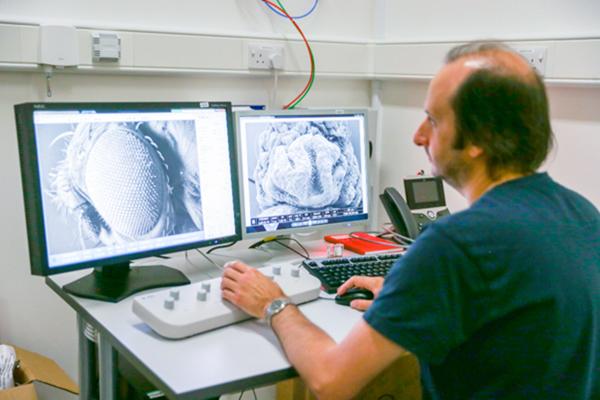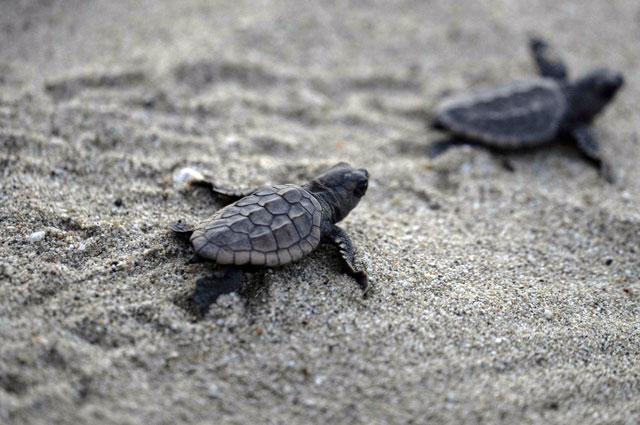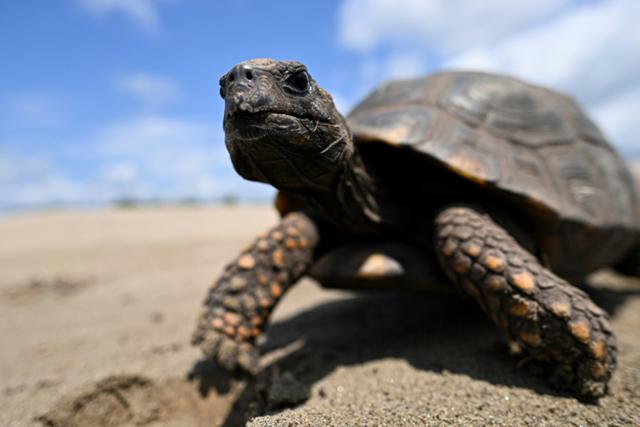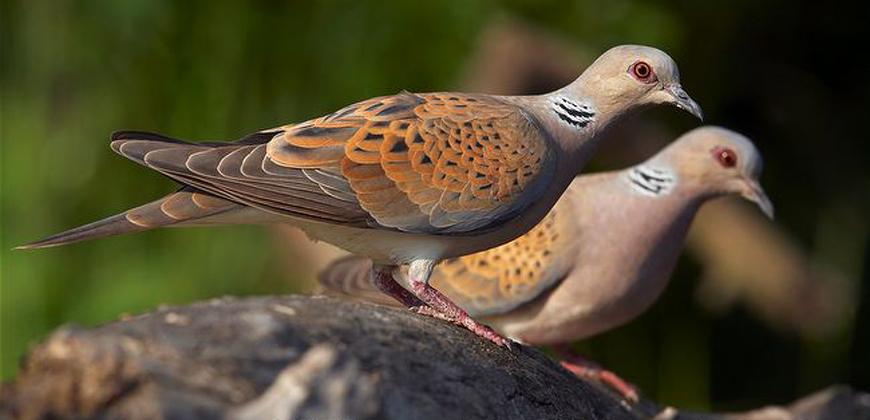You are here
Life-altering science moves fast, sparking debate
By AFP - Sep 18,2016 - Last updated at Sep 18,2016

A scientist studies a non-modified DNA (left) and a modified DNA image of a fly’s eye with an electron microscope (AFP photo)
HONOLULU — Scientific techniques that can wipe out invasive species or alter mosquitoes’ ability to carry disease are pushing ahead, raising concerns about the ethics of permanently changing the natural world, experts say.
This fast-moving field of science — which involves changing the biology of creatures by interfering with their DNA — is increasingly being debated not only for human health purposes but also in conservation circles.
Perhaps the most controversial type of research is known as a “gene drive”, which ensures that a certain trait is passed down from parent to offspring. It eventually leads to genetic changes throughout the entire species.
Projects being considered include one to release altered mice on islands that will only bear male offspring, ensuring an end to future generations, scientists said at the International Union for Conservation of Nature (IUCN) World Conservation Congress.
Another idea is to save endangered birds on the Hawaiian islands by releasing altered mosquitoes that cannot carry avian malaria.
Other approaches, such as the Oxitec mosquito developed by Intrexon, is not technically a “gene-drive” approach but would cut down on the population of mosquitoes by introducing altered males whose offspring cannot survive.
Proponents of gene-drive technology say it eliminates the need for polluting pesticides, and could offer a more effective remedy against invasive species than any tool on hand.
But opponents fear the impacts of permanently altering life forms on Earth and its unknown — and likely irreversible — impact on Earth’s creatures and its ecosystems.
‘Behind closed doors’
Kevin Esvelt, an assistant professor at the Massachusetts Institute of Technology (MIT), is among the first scientists to propose using gene editing, or CRISPR technology, to alter species.
He is also one of the most cautious voices on its potential uses.
“As a scientist who worked on it, I am particularly concerned because we scientists are ultimately morally responsible for all the consequences of our work,” Esvelt said at a panel discussion at the IUCN meeting.
“It should be a requirement that no one gets to build a gene drive or any technology designed to alter the shared environment in a laboratory without making their proposals public first,” he said.
“If something goes wrong in the laboratory, it can affect people outside the laboratory,” Esvelt added.
“That means if you do it behind closed doors, — as is traditional in science — then you are not giving people a voice in a decision that might affect them.”
He also said the current regulatory environment is “all based around release. And not really stringent enough, frankly, if you ask me”.
Quick action
But others at the same panel called for quick action to save imperilled species from invasive species and disease before they disappear forever.
“One of the scariest things of working in conservation in Hawaii is there is no way to save these birds from malaria,” said Chris Farmer, Hawaii programme director of the American Bird Conservancy.
A total of 38 forest birds in Hawaii have gone extinct already due in large part to avian diseases, and 21 of the remaining 32 species are at risk, experts say.
By not exploring new technologies, “we are choosing to let these species go extinct”, Farmer said.
Another speaker on the panel, Anthony James, professor of microbiology and molecular genetics at the University of California Irvine School of Medicine, said time is of the essence.
“You have heard the urgency in the voices of my colleagues here worried about the birds and the trees,” he said.
“One of the key things that is going to be important for this technology is the ability to get these genes out in a very rapid way in the population.”
Call for caution
Members of the IUCN voted for caution on gene-drive technology at the ongoing World Conservation Congress, a meeting of environmentalists and heads of state from around-the-world that runs from September 1-10.
A motion was adopted that called for IUCN members to refrain “from supporting or endorsing research, including field trials, into the use of gene drives for conservation or other purposes” until a rapid assessment was completed by 2020.
However, the motion is non-binding, and does not prevent anyone from pursuing individual research.
British primatologist Jane Goodall and dozens of other environmentalists and scientists have signed an open letter expressing concern about the use of gene drives in military, agriculture and conservation.
The letter calls for a halt to all proposals for the use of gene drive technologies “given the obvious dangers of irretrievably releasing genocidal genes into the natural world”.
Related Articles
PARIS — More than half of species whose endangered status cannot be assessed due to a lack of data are predicted to face the risk of extinct
PARIS — At least one in five reptile species are threatened with extinction, including more than half of turtles and crocodiles, according t
AMMAN — The International Union for the Conservation of Nature (IUCN) has uplisted the turtle dove, a migratory bird widely sought after by














